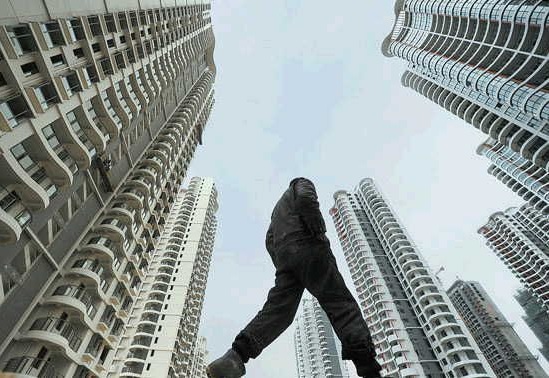
October 16, 2013, by Tony Hong
Overtaking the UK, chasing the US… in property prices
By Dr. Youqing Fan,
Assistant Professor, School of Contemporary Chinese Studies at the University of Nottingham Ningbo China.
The slogan ‘Overtaking the UK, chasing the US’ proposed by Chairman Mao in 1958 has now been realized in China. The rapid growth of its economy has enabled China to overtake the UK in terms of Gross Domestic Product (GDP) in 2006 (March 5th, 2012 Xinhua News Agency), and it is expected that China will surpass the US to be the largest economy in the world by 2016 (May 11th, 2011 China Daily). But with this comes soaring property prices that have already risen to be among the world’s most expensive, comparable to the city of London and Manhattan.
Over the last decade or two, China has witnessed a drastic increase in real-estate prices in urban areas, particularly in those ‘first tier’ cities (i.e. Beijing, Shanghai, Guangzhou and Shenzhen) where huge populations are concentrated. Compared to the year 2000, residential property prices had increased by 86% in 2010 among 70 large and medium size cities in China (Ministry of Land Resource, 2011). As of September 2013, the average price per square meter in the Beijing Central Business District (CBD) has risen to well above ¥45,000, according to China’s real-estate portal site soufun.com.
Compared to the Beijing’s CBD, the property prices in London is about ¥35,000 per square meter, roughly 25% lower. According to Chinanews.com, the average property price in Manhattan, New York ranges from ¥60,000 to ¥80,000 per square meter, around 1/3 higher than Beijing’s CBD.
To interpret the price difference, two points have to be taken into account. The first is the difference in rights associated with the property purchase. In the UK and the US, when buying a property, the purchaser owns all the rights to the land where the property is built. Whilst in China, although the purchasers own the property, they only have rights to use the land for 70 years as the land is owned by the state. The government reserves the rights to charge a fee for renewal of the land tenancy or withdraw the land when the tenancy expires. Another point worth noting is that in the US and UK, there is an annual property tax or council rate, which adds to the property costs.
Nevertheless, whilst property prices of Beijing have risen to the world’s top level, the average annual income of Beijing residents is still around 1/5 of those reside in New York and London (UBS, 2012). People would have to work for 40 years without spending their salary to buy an 80 square meter large apartment in Beijing. Housing affordability therefore has become a big challenge for people who expect to settle in Beijing.
Why have property prices grown to such a sky-high level? By looking into the composition of property price we could get some further insights. The property prices can be broken down into four parts, namely, land-transferring fees (fees that different levels of government charge for selling out the usage rights of the land to developers), tax and administrative charges, construction cost and developer profit.
According to data disclosed by Ministry of Land Resource of China, back in 2011, the land-transferring fees accounted for 20%-40% of the overall property price. And, in the first tier cities, the transferring fee comprises an average of 35% of the overall price (Zhongyuan Research, 2011). The increased rate of government revenue obtained from selling land usage rights has also outpaced the growth rate of the property prices, with the land-transferring fee collected surging by 174% from 2000 to 2010. On top of the transferring fees, in Beijing, the developers need to contact more than 20 government agencies and are liable for paying more than 40 types of taxes and administration charges, which were estimated to account for over 14.21% of the overall residential property retail prices (ACFIC, 2011). Altogether, 40%-55% percent of the property prices become government revenues.
According to recent media reports quoting examples from developers in Shandong and Henan, construction costs make up between 30%-40% of overall property prices. Therefore the average profit rate of the major real-estate developers in China is between 13% and 18%, according to Evergrande Real-estate Corp.
Although the central government has issued policies, including the most recent ‘Five principles’ (国五条) issued in early 2013, to restrict property transactions, the prices still surged in major cities, especially in Beijing since late 2012. With recent ‘Diwang’ (new high in land-transferring fees) coming out in Beijing and Shanghai, it is not surprising to expect the property prices to rise even further the near future.
No comments yet, fill out a comment to be the first

Leave a Reply